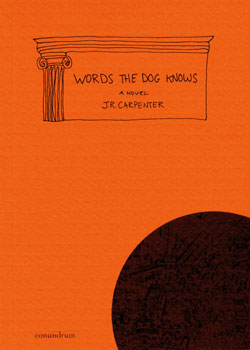Announcing Notes on the Voyage of Owl and Girl, a brand new work of web-based computer-generated digital literature created especially for “Avenues of Access: An Exhibit & Online Archive of New ‘Born Digital’ Literature,” curated by Dene Grigar & Kathi Inman Berens. The exhibition will be held in conjunction with the MLA 2013 Convention in Boston, 3-5 January 2013, but the website – containing links to 30 new born digital works and a plethora of resources pertaining to born digital literature – is online now: Avenues of Access: An Exhibit & Online Archive of New ‘Born Digital’ Literature
![J. R. Carpenter || Notes on the Voyage of Owl and Girl [detail]](http://luckysoap.com/lapsuslinguae/images/owlandgirl_detail5.jpg)
Notes on the Voyage of Owl and Girl is a work of fiction. Any resemblance to actual events, persons, places or texts is entirely intentional. Details from many a high sea story have been netted by this net-worked work. The combinatorial powers of computer-generated narrative conflate and confabulate characters, facts, and forms of narrative accounts of sea voyages into the unknown North undertaken over the past 2340 years. At the furthest edge of this assemblage floats the fantastical classical island of Ultima Thule and the strange phenomenon known to the Romans as sea lung. The main characters are sprung from Edward Leer’s Victorian nonsense poem, The Owl and the Pussycat. A lazy and somewhat laconic owl and a girl most serious, most adventurous, most determined, have set sail toward this strange sea in a boat of pea-, bottle-, lima-bean- or similar shade of green. The cartographic collage they voyage through collects the particularities of a number of fluid floating places – as described or imagined in sources as diverse as Hakluyt’s Voyages and Discoveries and the children’s poem Wynken, Blynken and Nod – and reacontextualizes them in an obviously awkward assemblage of discontinuous surfaces pitted with points of departure, escape routes, lines of flight.
For more information on the source texts, maps, and codes pillaged for this work, please see Notes on Notes on the Voyage of Owl and Girl.



